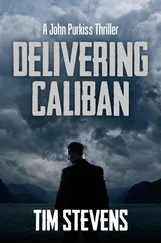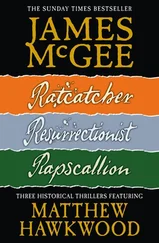Tim Stevens - Ratcatcher
Здесь есть возможность читать онлайн «Tim Stevens - Ratcatcher» весь текст электронной книги совершенно бесплатно (целиком полную версию без сокращений). В некоторых случаях можно слушать аудио, скачать через торрент в формате fb2 и присутствует краткое содержание. Жанр: Триллер, на английском языке. Описание произведения, (предисловие) а так же отзывы посетителей доступны на портале библиотеки ЛибКат.
- Название:Ratcatcher
- Автор:
- Жанр:
- Год:неизвестен
- ISBN:нет данных
- Рейтинг книги:5 / 5. Голосов: 1
-
Избранное:Добавить в избранное
- Отзывы:
-
Ваша оценка:
- 100
- 1
- 2
- 3
- 4
- 5
Ratcatcher: краткое содержание, описание и аннотация
Предлагаем к чтению аннотацию, описание, краткое содержание или предисловие (зависит от того, что написал сам автор книги «Ratcatcher»). Если вы не нашли необходимую информацию о книге — напишите в комментариях, мы постараемся отыскать её.
Ratcatcher — читать онлайн бесплатно полную книгу (весь текст) целиком
Ниже представлен текст книги, разбитый по страницам. Система сохранения места последней прочитанной страницы, позволяет с удобством читать онлайн бесплатно книгу «Ratcatcher», без необходимости каждый раз заново искать на чём Вы остановились. Поставьте закладку, и сможете в любой момент перейти на страницу, на которой закончили чтение.
Интервал:
Закладка:
When he reached the corner of the wall where it bent rightwards, and judged he was far enough away that it was unlikely sound would carry, he stopped again and took out the phone he’d lifted from the man on the basement steps. The signal icon had a defiant slash across it. When he tried to dial Elle’s number a low repeated tone confirmed that he was out of range.
Purkiss took deep breaths through his mouth — his nose was swollen closed and he was afraid that the slightest attempt to force air through it would unplug a geyser — and prepared himself for what he was going to do. The treatment by Kuznetsov’s men after his capture, the effect of seeing Fallon again, the head butt to his face, the escape, all contributed to the overpowering nausea that churned in his stomach. It would make matters easier.
He bent over near to the wall, put two fingers down his throat, and did it as quietly as he could. After two or three dry heaves it came, clots and ropes of swallowed blood mainly, but also the remnants of the sandwiches Elle had made. Bile stung his throat and his stoppered nose, and his eyes streamed. When he was sure he was finished he wiped away the tears and knelt. With his fingers he began to probe, disgust twisting his face.
He found the SIM card immediately, even in the dark, had in fact felt its sharp edges as it came up. He wiped it on his shirt tails until it felt as clean as it was likely to get. He didn’t know how long a card could be exposed to stomach acids before it was rendered useless, but he supposed his education was about to be furthered. He swapped the card for the one in the phone. It was a long shot. Abby was no longer around to access the website from which she was tracking him, and he didn’t know if Elle had the facilities to hack the site or in some other way locate the phone that held his SIM. He didn’t know if Elle was even still alive, come to that.
From his corner he watched a figure detach itself from the group at the wall and move rapidly back up towards the buildings. The tableau was eerily still for a few moments, the fossil aircraft separating Purkiss from the hangars which brooded like great ancient megaliths in the gloom. Purkiss didn’t have a clear view of the area between the floodlit hangar and the office building, but he saw the odd flicker of movement there. In time, two figures appeared and ran down the slope to join the others at the wall. He watched them clamber over. Five, then, on the other side. How many did that leave in the buildings?
He was at the back of the hangars, and none of the office windows were lit on this side of the building. He took a breath and began making his way back towards the structures, between the hulks of the abandoned planes, the SIG-Sauer in his hand.
A scream jerked him awake. He cried out with pain and fought to keep himself upright, looking about in panic before orientation settled in.
The Jacobin was at the kitchen table, had dozed off slumped across it. Six fifteen. He’d been out for three quarters of an hour. He hadn’t intended to fall asleep but it had done some good, he could feel it.
The scream had come from the television on the wall. It hadn’t been a scream, rather a shout from a female reporter at a crowd scene, somewhere along the coast road on the way to the War Memorial. The rain seemed to have dwindled. Through the window the Jacobin saw smudges of grey beginning to streak the darkness.
The reporter pattered away: perhaps the easing of the rain is significant in other ways . Just as the choice of eight o’clock — sunrise — for the timing of the handshake was no coincidence. The Jacobin appreciated the power of symbolism, but as far as he was concerned this was nothing more than sentimental claptrap.
Against every sinew that was screaming for him to stay where he was, the Jacobin forced himself to stand and stretch, the agony making itself felt almost everywhere in his body. A hacking cough brought fresh stabs of pain. He filled a glass with water and drank and refilled and drank again, spilling the contents down his chin and on to his rank shirt front.
He had two options. Do nothing, let the situation play itself out, and face the bittersweet consequences: the re-establishment of the old roles, the old and righteous opposition of East and West, but — the bitter part — with West clearly in the wrong from the outset, its agents demonstrably responsible for the rekindling of hostilities. Or, the second option, take the only course that would simultaneously ensure that the assassination proceeded as planned and absolve SIS of all responsibility for it: be there at the scene, and clean up the evidence afterwards. Remove the bodies, even if it meant killing Kuznetsov and every one of his crew in order to do so.
Option two was less realistic than it had been before he’d fallen asleep. What he’d gained in strength he’d lost in time wasted. Six twenty-one. In forty minutes the helicopter would be taking off. One hour after that, the hit would take place. The Jacobin had little more than an hour and a half to commandeer suitable transport and get to the site. And then — what? Kuznetsov was going to have backup. It was part of the plan. Eight, ten guns to deal with.
The Jacobin leant against the back of the kitchen chair, a compromise between enduring the pain and weariness and the siren trap of sitting down again. It was then that he noticed on the table the open laptop, the one that had belonged to the girl. Out of no more than idle curiosity he reached over and swiped the mousepad to bring up the screen from its sleep.
He allowed himself to sit down this time, staring at the screen. He had left open the tracking website. Instead of the message no signal detected , he saw a softly pulsing beacon on an ill-defined background that resembled a grid.
So Purkiss had taken his phone, or at least his SIM card, in with him after all. And either he’d been out of detectable range earlier for some reason and had now been placed somewhere where the signal could be picked up again, or — more likely — he’d found a way to get the SIM into a new handset. Which meant he was on the loose.
The Jacobin pulled the laptop towards him, all discomfort forgotten, and began to hit the keys.
The rear of the hangar wasn’t floodlit and Purkiss hugged the wall in the dark. Through the concrete he heard a muffle of sounds, the occasional clash of metal.
When it became clear he wasn’t going to be able to make out any speech he sidled along to one of the corners and glanced round. There was nobody in the space between this hangar and the next. He moved quickly down the length of the structure towards the front. Halfway along was a small metal door, a Braille pattern of rust across its surface. He touched the handle and pushed it down with exquisite slowness, pausing as its unoiled surfaces emitted a tiny screech and controlling the movement even more finely. He gave the door the lightest of tugs. It yielded, though there was a squeal from the hinges. He froze, listening, but the sound had been drowned by the noises from inside.
He put an eye to the crack he had made. The angle allowed him to see the front left corner of the hangar. The large doors at the front stood open and the light from the floods was spilling in, though the interior had its own brilliant source of illumination. Somebody crossed the path of his vision. He flinched. The glimpse had been momentary, but it looked like Lyuba Ilkun, the woman from the nightclub.
Purkiss left the door ajar an inch, eased himself further down the wall towards the front of the hangar. As he got nearer to the light, voices began to emerge from the foam of sound. Low men’s voices, the vowels pronounced far back in the throat in the Russian manner. At the corner he caught a glimpse of a figure stepping out into the dazzle of the floodlights. He drew back, not before he’d recognised the broad back and shoulders, the greater than average height. It was the man he’d seen getting into the four-wheel drive on the coast road. Kuznetsov.
Читать дальшеИнтервал:
Закладка:
Похожие книги на «Ratcatcher»
Представляем Вашему вниманию похожие книги на «Ratcatcher» списком для выбора. Мы отобрали схожую по названию и смыслу литературу в надежде предоставить читателям больше вариантов отыскать новые, интересные, ещё непрочитанные произведения.
Обсуждение, отзывы о книге «Ratcatcher» и просто собственные мнения читателей. Оставьте ваши комментарии, напишите, что Вы думаете о произведении, его смысле или главных героях. Укажите что конкретно понравилось, а что нет, и почему Вы так считаете.












